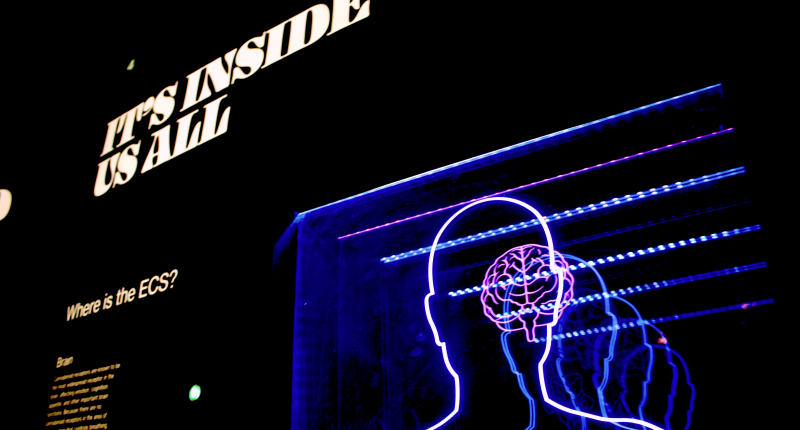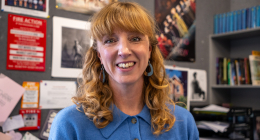Psychology is one of those subjects where people generally know of its existence but do not really understand it in depth. Pop culture may have created a notion that psychology is merely old men and hags in their white doctor robes, doodling notes as their patients talk about trauma. Or, perhaps the media has portrayed psychology as the subject a failing student studies at university just to land a job at McDonald’s after graduating with their Bachelor’s.
But such an idea of psychology is a simply misunderstood idea of this subject. Really, psychology is like any other science that utilises scientific methods to conduct research so as to investigate behaviour and mental processes.
What is psychology?
To put it quite simply, psychology is the scientific study of behaviour and mental processes. The study of behaviour is centred around understanding the observable actions of a person or an animal. On the other hand, the study of the mind focuses on sensations, memories, motives, emotions, thoughts, and other subjective phenomena that are not readily observed.
But it would be wrong to assume psychology has always been like this. Psychology is an ever-changing discipline dating back to Ancient Greece where it finds its roots in philosophy with figures like Socrates, Aristotle, Hippocrates and Plato simply speculating on the nature of the mind. For example, Socrates and Plato argued that humans possess innate knowledge that is not obtainable simply by. Meanwhile, Aristotle believed humans derive their knowledge from the physical world.
These were merely lines of questioning that led to philosophical debates, causing psychology to be considered a branch of philosophy.
Psychology, as we know it today can be accredited to Wilhelm Wundt, the Father of Psychology, who established the first lab for this field, officially differentiating it from philosophy. Over time, this led to students of Wundt creating the first theoretical approaches to psychology which, thanks to the contributions of countless prominent figures throughout history, developed psychology into what it is now.
Today, you know this subject as a science due to its use of systematic observation and data collection to answer questions about the mind and behaviour. Much like other sciences, psychology merely seeks to describe, predict and explain natural phenomena, with theories being proposed and replaced over time.
Why study psychology?
“The human brain is by far the most complex physical object known to us in the entire cosmos.” -Owen Jay Gingerich, American Astronomer
Often, in sciences, students are taught an objective truth. In biology, for example, you may have learned about the Krebs Cycle, which is a natural process that is indeed, matter-of-fact. While you do cover that to a certain extent in psychology (eg. how visual perception works), there are a great deal of ideas and theories surrounding behaviour and mental processes.
Despite the power of science, our consciousness which stems from matter, remains a profound mystery. As a result, students examine the different perspectives that have been proposed over the history of psychology explaining human behaviour from the foundations of Wundt to the big three psychologists Freud, Jung and Hall.
Though it may seem odd that psychological topics are still being debated today, there is beauty in the uncertainty of psychology, which is where you, the student, come in.
Psychology helps you better understand how humans think and develop
After all, the goal of psychology is to gain a better understanding of how humans think and develop. Though psychology is not like a natural science that explains how the world works, it does analyse the reasons behind what causes human behaviour and certain processes to occur.
For instance, have you ever reacted to something in a way that one of your biological parents would – in a way you vowed you never would? Now to what extent was your behaviour actually inherited and predisposed by genetics? To what extent was your behaviour influenced by your home and community environments?
This is the famous Nature Versus Nurture Argument, one of the most controversial topics that psychology seeks to answer. By studying psychology, students can learn about different personality types, the causes of behaviour and how they affect the way humans think and feel, providing an explanation and understanding for mysterious, mind-stumping occurrences like this.
Psychology encourages critical thinking as opposed to taking things as matter-of-fact
Consider:
The disparity in success between a student from East Auckland and a student from South Auckland. Why did this happen?
Were their physiological needs met? How safe were their environments? Did they feel loved and have a sense of belonging to their environment? What was the level of their esteem? According to Maslow’s Hierarchy of needs, the extent to which a person has these needs fulfilled will impact their pursuit of self-actualisation.
Studying psychology offers insights into common phenomena like this by considering biological, social, and psychological perspectives as shown above. These lines of questioning reflect the critical thinking developed in psychology, which allows students to see past preconceived notions associated with a disparity in success that are at times, marginalising.
Studying psychology pays dividends to your other subjects
Yes, psychology is the study of the mind and mental processes, but at the end of the day, psychology is still a relatively young branch of science and therefore, incorporates several disciplines like biology, maths and chemistry into the field. Due to the very nature of psychology, studying it will consequently provide a broad understanding of other subjects in addition to what you learn about the mind and its processes.
Therefore, there is often an overlap between psychology and other subjects. The endocrine system, for instance, is covered in both psychology and biology. All other things equal, a student studying psychology in conjunction with biology will undoubtedly learn the endocrine system faster and may even have a deeper understanding of the endocrine system than a student who only studies biology.
From personal experience, building competency in reviewing research for the purpose of critiquing statistical/research methods has helped me LOADS in my other academic pursuits such as A Level Economics or Scholarship Statistics when they required the review of data collection.
What do you learn in psychology?
Psychology, being stereotyped as a less “rigorous” subject is unfortunately not offered by many schools both in New Zealand and internationally at the college level. As a result, there is usually a scarcity of digestible textbooks that introduce a formal curriculum for students to focus on in the broad world of psychology.
But thanks to some computer science bloke who discovered the internet, a 21st-century student like yourself can find all the psychology content you need on the internet. Given that psychology is less common in the boards that New Zealanders are more familiar with (NCEA, IB and A Levels), the Advanced Placement (AP) Curriculum comes as a lifesaver for any student interested in studying psychology.
Although this is a rigorous university-level course offered to college students, all AP courses are structured to be self-study material, meaning with enough time and dedication, even the average Joe can pick up a basic understanding of psychology. There are various means by which the course can be studied, with YouTube, EdX and textbooks (such as Princeton Review or Barrons) being popular resources for students.
The AP Psychology Course includes:
- Scientific Foundations of Psychology
- Biological Bases of Behaviour
- Sensation and Perception
- Learning
- Cognitive Psychology
- Developmental Psychology
- Motivation, Emotion and Personality
- Clinical Psychology
- Social Psychology
In essence, the subject of psychology offers students a journey into the intricacies of the human mind, from the perspectives of ancient philosophers to modern scientific enquiry. It is a means by which students can gain insights into the complexity of humans and consequently, society.
If you are a student who is driven by curiosity to understand why things work the way they do, the ambitious challenge of taking on self-studying psychology could be right for you.
24th March, 2024
Written by Aaron Huang, edited by Emma Li
Photo by Bret Kavanaugh on Unsplash








